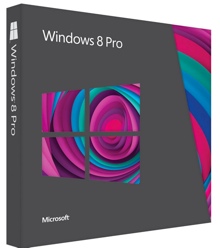The love affair with Windows 8-powered hybrids is over before it started

Windows 8 is built around the premise that people want to interact with their PC through touch, but deep discounts of Windows 8-powered hybrids at the Microsoft Store suggest that the love affair with these devices is already at an end.

The discounts are highlighted on ZDNet's sister site CNET, and they're very deep discounts indeed, with the price of the Toshiba Satellite U925T-S2130 Convertible Ultrabook slashed by almost 35 percent. No matter how you look at it, cuts like that are huge, and are bound to raise a few eyebrows.
This isn't the only sign that things aren't going well with the Windows 8 sales machine. Last month, IDC analyst Bob O'Donnell told CNET that Windows 8 PC sales had "horribly stalled", and IDC expected computer shipments to fall by 1.3 percent this year, after it had initially predicted a 2.8 percent rise.
And this decline comes on top of an even more precipitous 3.7 percent fall that the industry experienced in 2012.
And I'm hearing unofficial conformation of this from sources within OEMs, too. The hope that Windows 8 would reinvigorate PCs sales has evaporated, and makers are now resigned to the fact that desktops and notebooks are going to be sitting around gathering dust as consumers choose instead to spend their money on smartphones and tablets.
I've said it before, but I'll say it again — touch on traditional desktops and notebooks is a solution looking for a problem to fix. Microsoft had touch support built into Windows for years, and consumers didn't care about it then, and it seems that outside of devices such as Microsoft's own Surface, people don't care about it now, either.
As far as new classes of devices are concerned — devices such as hybrids and convertibles — the problem with these is that they're embryonic. While people were fast to embrace devices such as the iPhone and iPad, consumers haven't been so enthusiastic when it comes to tweaked versions of PCs. To most people, a PC is either a desktop or a notebook, and it seems that devices that blur the lines between desktops, notebooks, and tablets are making people nervous.
Microsoft bet the farm on touch with Windows 8, and so far it seems that the bet hasn't paid off. While I think that Microsoft certainly needed a response to iOS and Android, shoehorning an entire touch-based user interface into an operating system primarily designed to be driven by a keyboard and mouse made little sense to me at the time it was unveiled, and it seems that it makes little sense to buyers either. Windows RT makes sense — if Microsoft can convince people to buy the hardware — as does a touch mode for the full version, but forcing the interface on everyone was a step too far. No one in their right mind wants to trade a new user interface in exchange for a massive workflow hit.
Just to be clear here, though, PC sales were stagnating even before Windows 8 came on the scene, so the operating system is not entirely to blame for the state of the market now, but the operating system did nothing to help revive the industry.
The PC is dying, and it doesn't look like Windows 8 is going to save it.